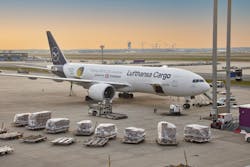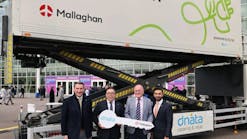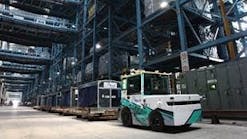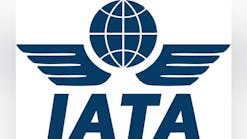Lufthansa Cargo Leads Transformation Course of Air Freight Industry
Air freight is one of the most important forms of goods transport worldwide. It offers the possibility of transporting time-critical goods such as aid supplies, sensitive goods such as medicines, or valuable goods such as works of art to their destination safely and without interrupting the transport chain. Sustainable developments are driving the future of air freight logistics. And even though there is still a long way to go before climate protection goals are achieved, the industry is already doing a lot.
On Logistics Day, Lufthansa Cargo once again appeals to aviation's potential for change.
"Air freight is indispensable. But we need sustainable change if we want to reduce the carbon footprint. To this end, we have set ourselves ambitious goals, and we see in practice that efficient flying, e.g. by using sustainable fuels, works. But to make a difference in terms of reducing emissions overall, the entire air freight logistics industry must follow suit. To this end, current developments must be used throughout the industry and future technologies must be recognized in good time," explains Brian Kowalke, environmental manager at Lufthansa Cargo.
Lufthansa Cargo's efforts clearly show that climate protection can also be successfully implemented in air freight logistics. By 2030 at the latest, the company aims to halve its carbon footprint compared to 2019 and to be completely CO2-neutral by 2050. In this regard, Lufthansa Cargo plays a pioneering role within the industry, as can be seen, among other things, in the implementation of the EU regulation ReFuelEU: In the new ReFuelEU Aviation Regulation, the EU Commission has defined a binding quota of renewable fuels for aviation. By 2025, for example, at least two percent and by 2030 at least five percent of SAF must be blended. Compared to fossil fuels, SAF reduce CO2 emissions by up to 80 percent. Today, Lufthansa Cargo is already scratching at the set first mark of two percent: In 2022, the SAF share in the fuel consumption of Lufthansa Cargo freighter aircraft was already 1.8 percent. Together with its partner DB Schenker, the company also offers the only regular full-charter freighter connection with 100 percent non-fossil fuel.
As a forward-looking company, Lufthansa Cargo invests not only in renewable fuels but also continuously in the modernization of its fleet and operates the most fuel-efficient cargo aircraft on the market. To further improve the fleet's fuel efficiency, the company relies on new technologies such as AeroSHARK, a special surface film that reduces the aircraft's frictional resistance. Extrapolated to Lufthansa Cargo's entire 777 fleet, this alone can save approximately 13,000 tons of CO2 emissions and more than 4,000 tons of kerosene annually. Other measures, such as reducing weight on board and flight optimization, further reduce the fleet's CO2 emissions. Digitization offers great potential: Lufthansa Cargo has already integrated this into its own service and today offers its customers, for example, extensive digital options along the transport chain - starting with eBooking and ending with eTracking.
"If we want to improve the industry's carbon footprint, we have to use every opportunity to further reduce our CO2 emissions," says Kowalke. "This is the only way we can get closer to CO2 neutrality, step by step. Sustainability must always be thought of holistically. So we also take smaller measures such as loading equipment optimization and recycling seriously. We are firmly convinced that every action counts."





